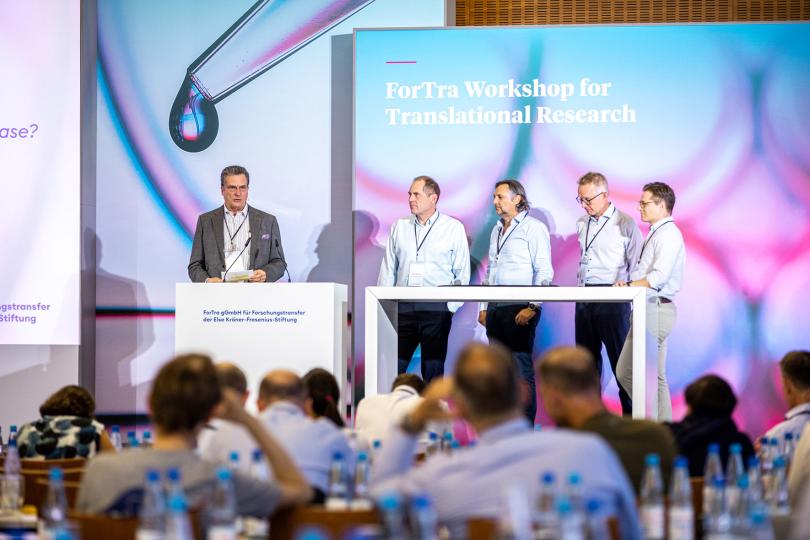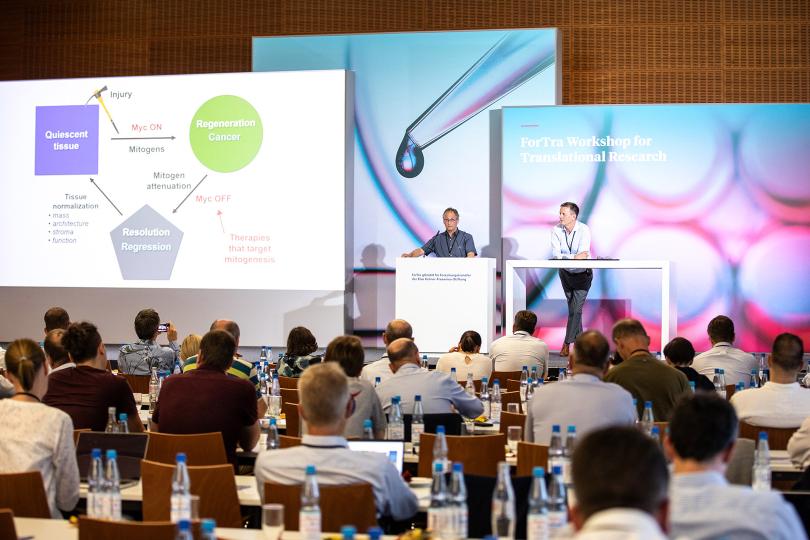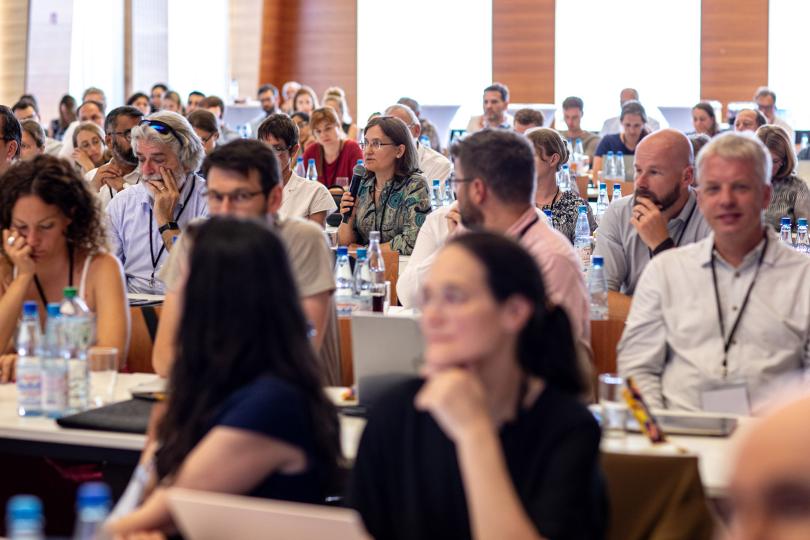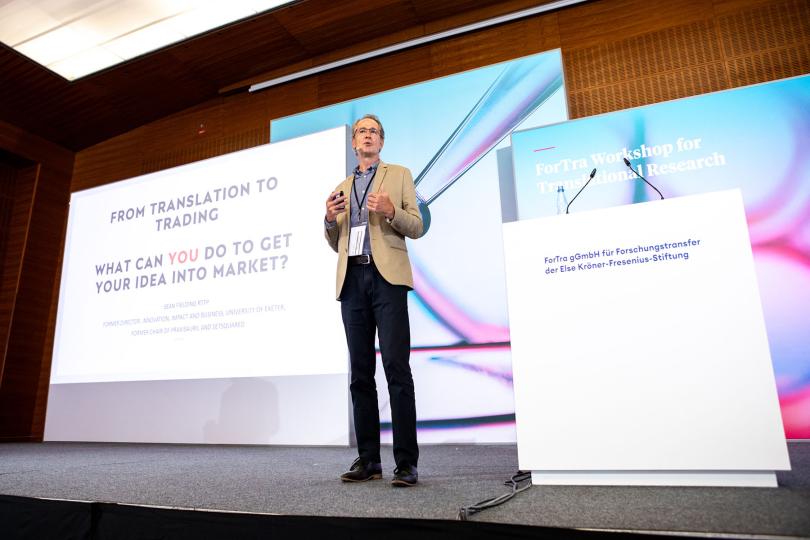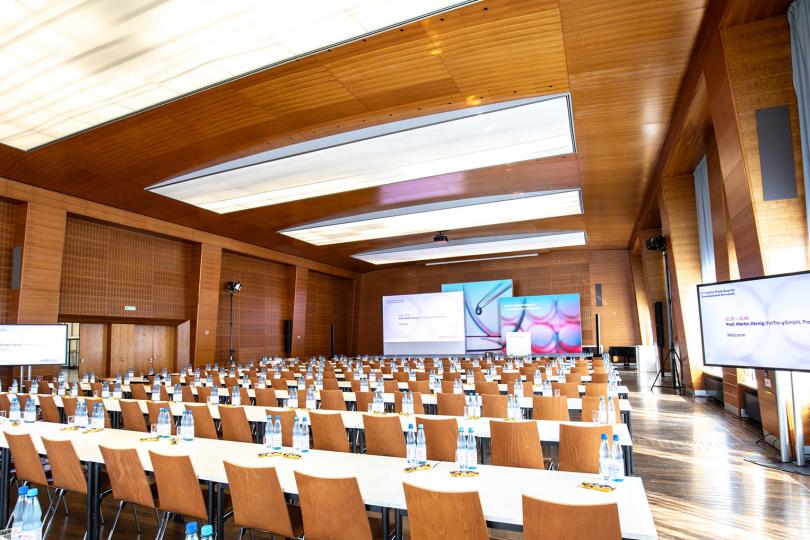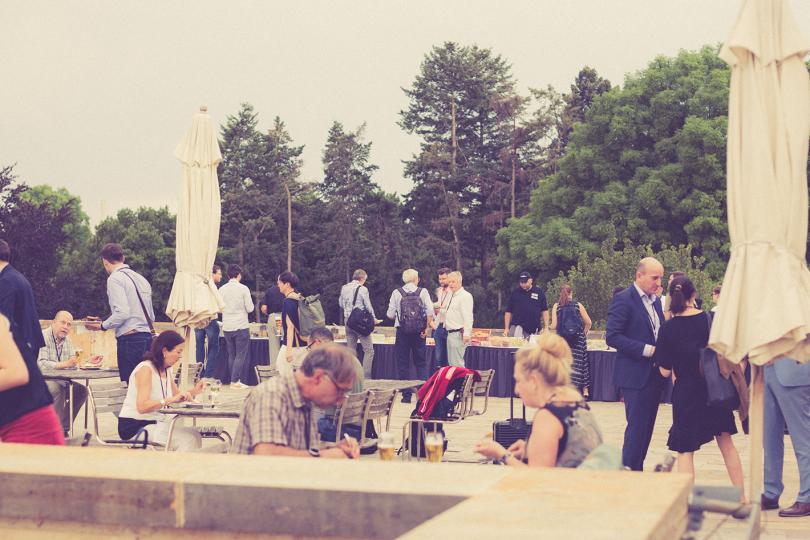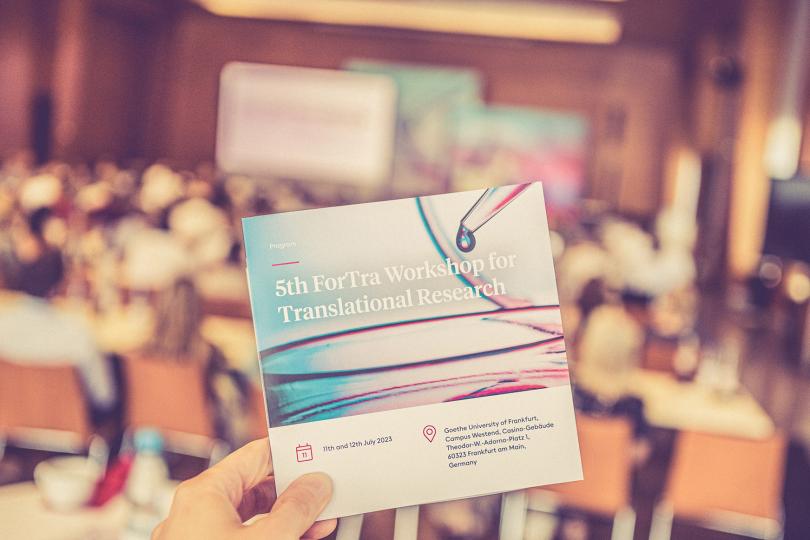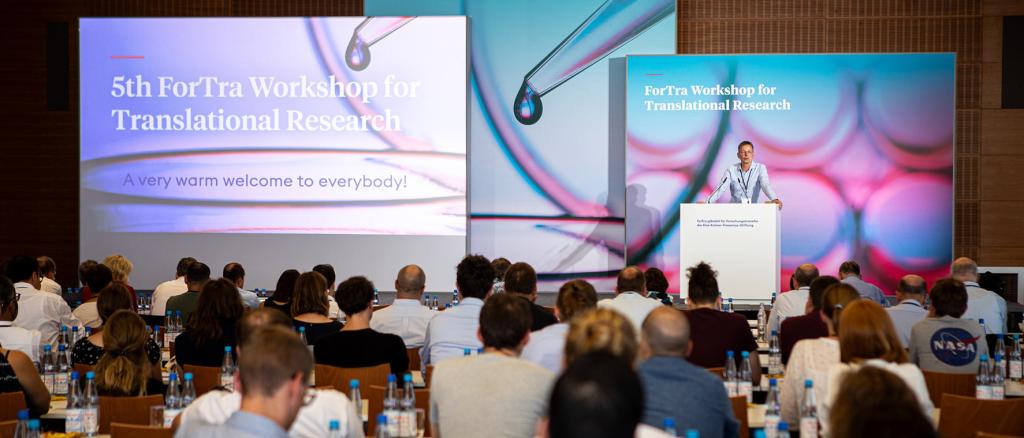
Upon invitation by ForTra, interested medical professionals and natural scientists got together at the Translational Research Workshop for the fifth time in Frankfurt am Main, Germany. At the two-day event from the 11th to the 12th of July, 2023 on the Campus Westend at Goethe University Frankfurt, this year the focus was placed on the issue “How can we improve the benefit of medical research for patients?”
The kickoff was delivered by Prof. Martin Zörnig, CEO of ForTra gGmbH für Forschungstransfer, a subsidiary of Else Kröner-Fresenius-Stiftung, with a look at the EKFS funding line for translational research. This was followed by a highly varied program involving papers and presentations from a total of 24 highly regarded experts from the field of clinical translation. They shared their expertise with the roughly 200 participants attending and were available afterwards for questions and discussions.
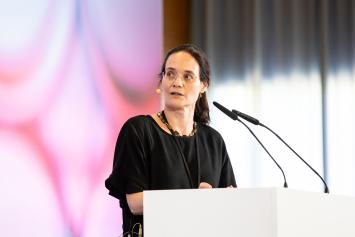
Alongside specialized papers on regulatory aspects, factors which attract attention inter alia when new medical products are launched, two translational research projects funded by ForTra were presented on the first day as well. In the project headed by PD Dr. Antonia Busse, Department of Hematology, Oncology and Cancer Immunology at Charité – Universitätsmedizin Berlin, a university hospital, the researchers developed a personalized T-cell therapy for patients with lymphomas. The successful translation of this therapy to the clinic has the potential to repress cancer cells on a long-term basis in what is otherwise a terminal illness.
In another project funded by ForTra, Prof. Achim Hoerauf, Institute of Medical Microbiology, Immunology and Parasitology, University Hospital Bonn, wants to deploy a natural antibiotic isolated from a certain bacterium to combat methicillin-resistant bacteria. Dr. Jonas Heitmann, Clinical Cooperation Unit Translational Immunology, University Hospital Tübingen, followed up by presenting clinical studies supported by ForTra in which cancer patients are treated immunotherapeutically using a self-developed bispecific antibody.
Dr. Axel Polack subsequently led an intriguing panel discussion including Dr. Martin Raditsch, CARMA Fund Management GmbH, Frankfurt/Munich, Michael Krebs, KHAN Technology Transfer Fund I, Dortmund, Dr. Frank Hensel, High-Tech Gründerfonds, and Christoph Broja, EQT Life Sciences, Stockholm. The subject: “When does a translational project become an investment case? Different perspectives on investment strategies.”
Another highlight from the first day was the keynote address given by Prof. Dr. Gerard Evan, The Francis Crick Institute, London. He delighted the audience with his explanations and remarks referring to the provocative paper entitled “Where cancers come from and how to make them go away.” As the research scientist elucidated in his contribution to the workshop, even though the forms of cancerous diseases are quite manifold and heterogeneous, a limited number of common denominators are able to be identified in them that give hope for new cancer therapies.
On the second day the workshop was set forth with a diversified program: First on the agenda, a variety of third-party funders and foundations presented their special funding programs toward supporting translational projects. Afterwards, Prof. Dr. Andreas Peschel, Interfaculty Institute of Microbiology and Infection Medicine (IMIT), University of Tübingen, followed by speaking about the development of a probiotic strain of bacteria that drives methicillin-resistant Staphylococcus aureus (MRSA) pathogens out of the nose – a project that is equally being funded by ForTra. Which also applies to the approach from Dr. Stefan Glöggler, Max Planck Institute for Multidisciplinary Sciences, Göttingen. Dr. Glöggler is working on a decidedly innovative improvement of NMR cancer diagnostics.
The second keynote speaker at the workshop, Dr. Sean Fielding, University of Exeter, numbered among the highlights of the series of reports with a gripping presentation on the topic of “From Translation to Trading – What can you do next to get your idea into market?” Dr. Fielding spoke about the role of scientists in dealing with investors and the transfer of their knowledge into free enterprise.
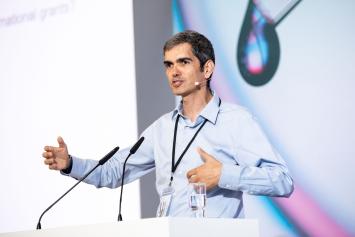
Dr. Julio Delgado, Hospital Clínic de Barcelona, concluded the series by giving a practice-related look at his endeavors to develop a cost-effective cell therapy drug for treating oncological patients and translating it from the lab to the sickbed.
As outcome, it remains to be noted: The 5th ForTra Translational Research Workshop was once again an inspiring and productive event. The participants obtained not only insights into the latest regulatory developments and scientific content of translational research projects: they also made extensive use of the opportunities for networking to exchange views with each other in a relaxed atmosphere.
